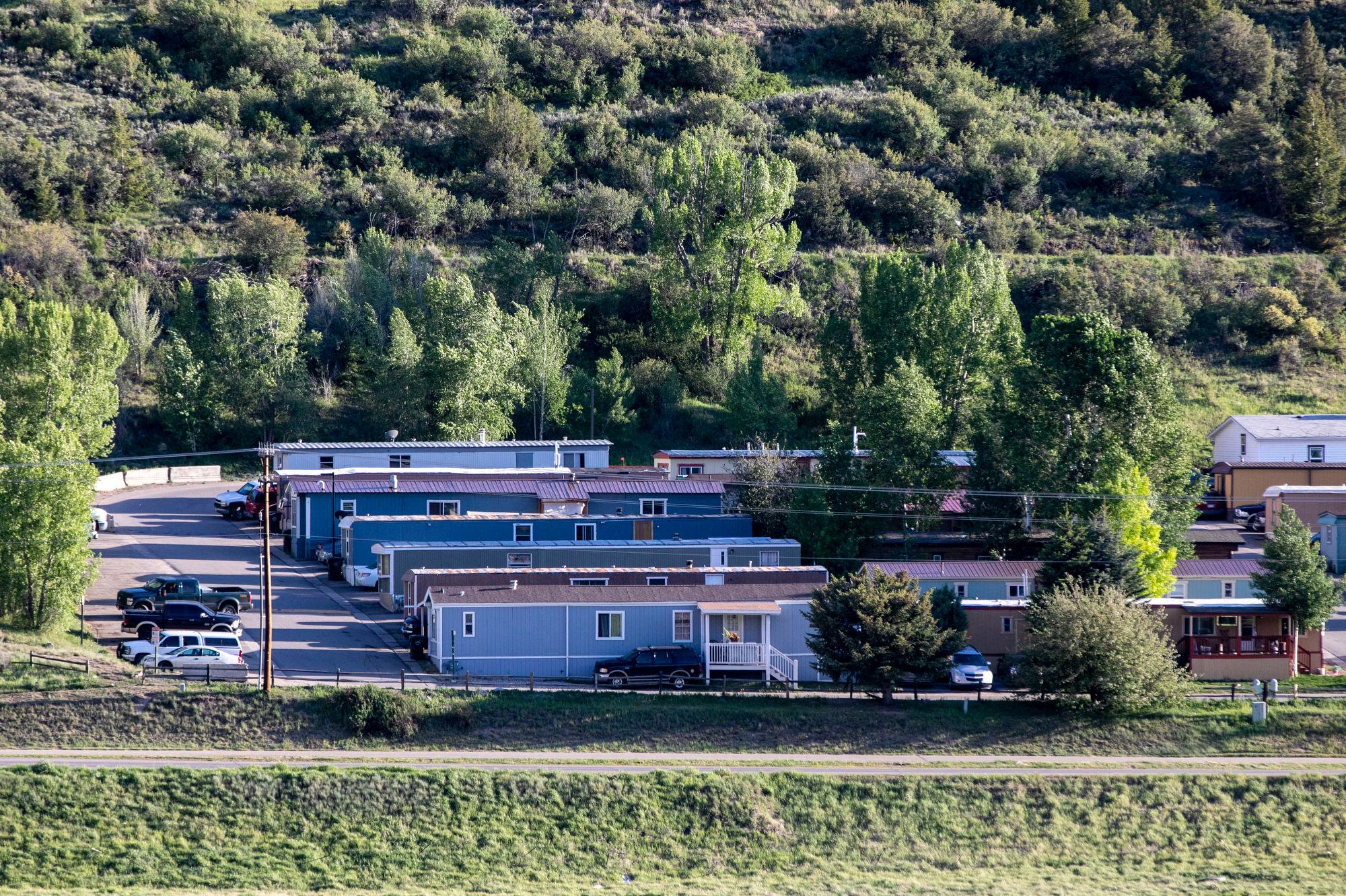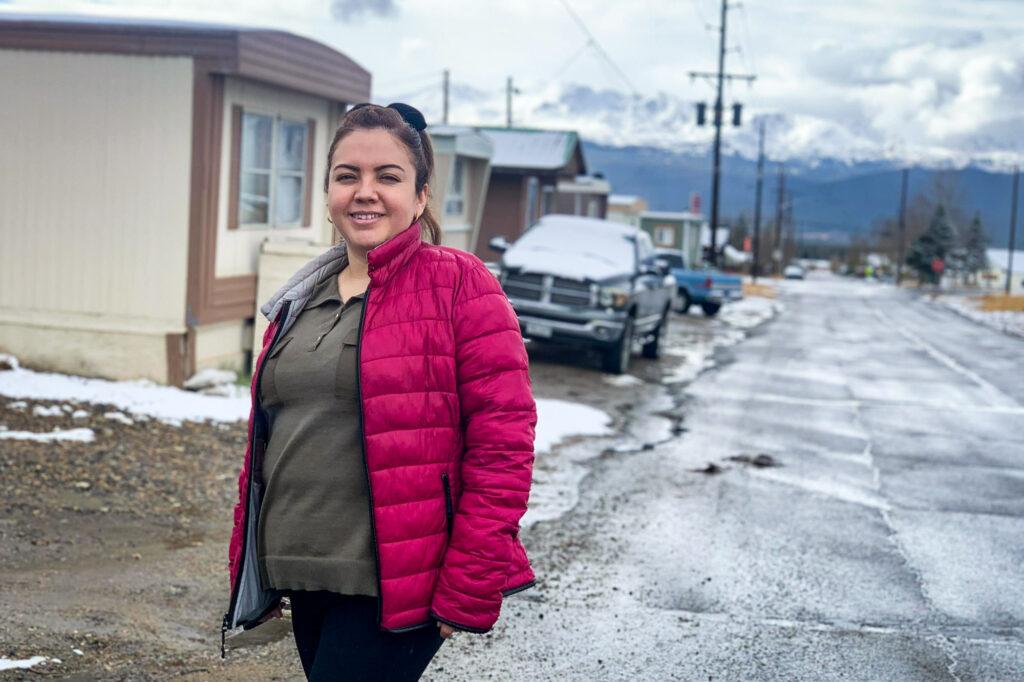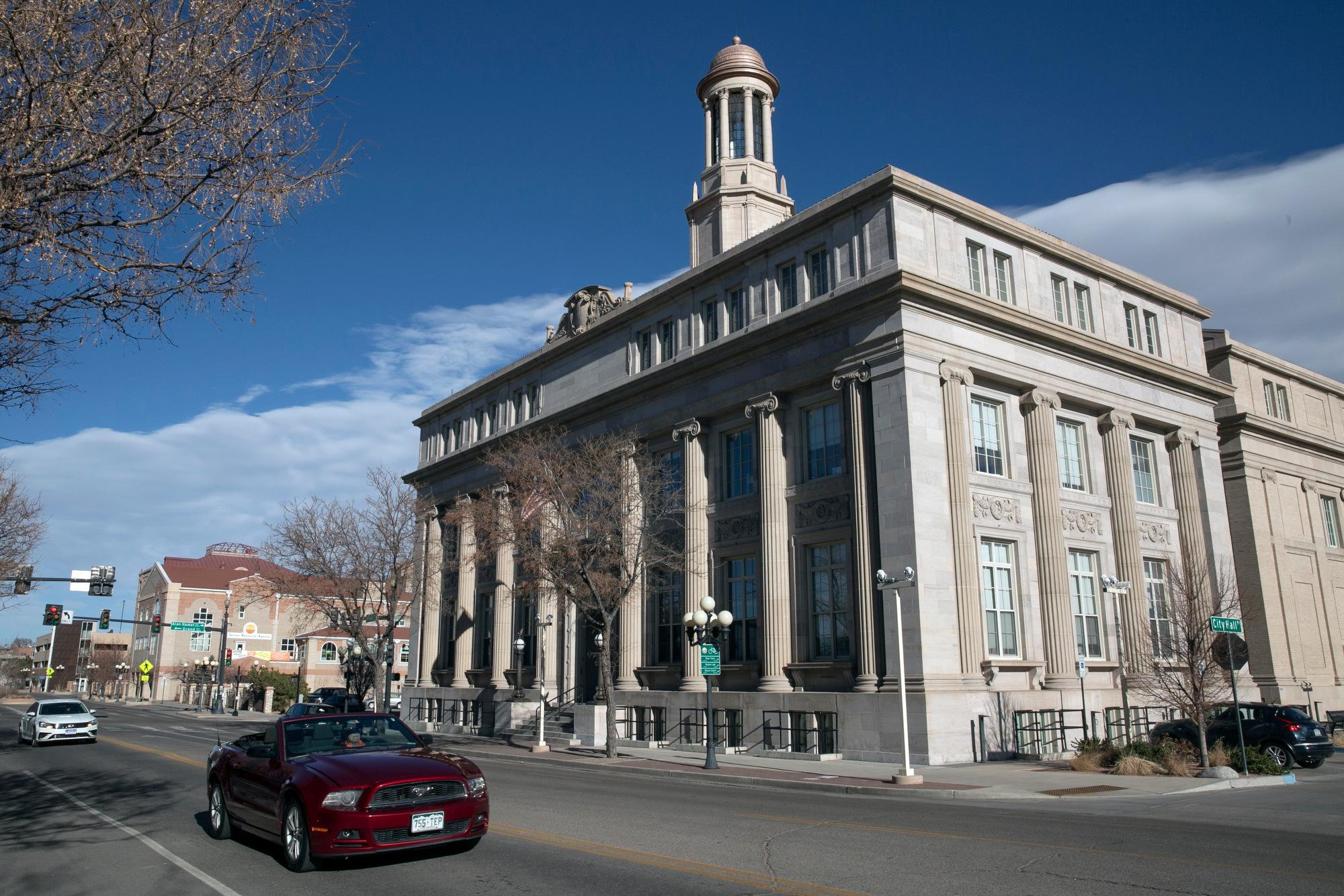
State lawmakers from Northern Colorado, dismayed by changes in local mobile home parks, are proposing a sweeping new bill that would include the first statewide mandate for rent stabilization, which is similar to rent control.
The bill would cap rent hikes on mobile home lots each year. It’s a response, the sponsors say, to the influx of wealthy investors who are buying mobile home parks and rapidly boosting rents as an easy source of revenue.
“We’re no longer dealing with sort of a mom-and-pop market,” said state Rep. Andrew Boesenecker, a cosponsor of the proposal.
“We’ve got large out-of-state investors and private equity firms buying up homes in Colorado because of the amount of cash flow that those homes offer and the equity they can build up very quickly through expensive rent increases.”
Boesenecker said mobile home parks are a unique part of the housing market, one that “deserves a unique solution.” But some owners of mobile home parks are warning that restrictions on rent increases could stifle investment in parks and leave owners unable to respond to upgrade their communities.
Mobile homes represent some of the state’s most affordable housing, and advocates say these communities are easily exploited by investors. Residents may own the home itself, but can’t afford to move it — and there are few other affordable options, essentially trapping them in the property.
“For mobile home park residents, there’s no relief valve,” Boesenecker said, saying residents are often “handcuffed” to land they don’t own.
Rent hikes capped at 3 percent
Under the initial proposal, landlords could only raise rent by up to 3 percent per year. Those kinds of legal limits on rent increases are practically unheard of in Colorado, especially on a statewide basis.
“This is what we’ve been building toward,” said Andrea Chiriboga-Flor, state director of 9to5, a nonprofit advocating for working women.
“Rent control — while that is a trigger for landlords, it’s something that people are really drawn to and ... are excited to be working on. This is setting a pretty big precedent in a state that’s pretty libertarian and has very strong property rights.”
To date, individual cities have only been able to set limits on rent at new developments, and even that power is weak. Rent control and rent stabilization have long been progressive goals — but Boesenecker said his cosponsor on the bill is state Sen. Joann Ginal, known as one of the legislature’s more centrist Democrats.
Ginal did not immediately respond to an interview request. Both sponsoring Democrats represent the Fort Collins area, where several parks have been sold to investors or shut down in recent years.
Statehouse lawmakers have shown growing concern for mobile home residents in recent years. If the new bill passes — which could be an uphill fight — it would represent the biggest change yet to come from that effort.
“It’s incredibly hopeful that there’s still momentum, that this is still a statewide conversation, that there’s still representatives willing to take on this issue,” said Noah Sosin, executive director of Lake County Build a Generation, a nonprofit that helped residents purchase a park in Leadville.

'Handcuffing' owners?
John Victor, who co-owns four mobile home parks around Colorado, said that he targets rent increases of 3 percent — the same limit the bill would set. But he said that rent control would endanger his parks and others. With limited revenue, owners couldn’t respond to urgent needs, he said.
For example, state regulators recently ordered Victor and his sister to replace the septic system of Pinon Pines, a park in Buena Vista. The system had been installed by previous owners only a few years prior, but apparently didn’t meet current standards, Victor.
Replacing the system could cost up to $1 million — close to what the siblings paid for the entire park. Without the ability to raise rents, it could be “goodbye, park,” he said.
“We don’t like rent raises. Rent raises are painful. The rent raise allows the community to continue to operate in a safe manner. At the end of the day, if you handcuff people you won’t even have a community to complain about anymore,” Victor added.
The proposed state law also could include money for landlords who want to upgrade park infrastructure, but only if they agree to keep the property as a park, Boesenecker said.
Victor said that funding could help, but he argued that rent regulation also could discourage investors who want to create parks, shutting off a source of new affordable housing, he said.
“You’re going to completely eliminate the appeal,” he said.
The Colorado proposal is sure to attract conservative opposition, too, since it represents a significant new use of government power over a broad swath of the private housing market.
Nationally, rent-control laws are more common for mobile home properties, including in nearly 100 California cities and counties. Statewide rent control of any kind is extremely rare, with Oregon enacting the first such law in 2019.
Giving residents an 'opportunity to purchase'
The bill also includes several other substantial changes to Colorado’s existing “opportunity to purchase” law, which allows residents a chance to bid on their mobile home park if it goes up for sale. The goal is to give residents more time and money to compete with other buyers.
Advocates say the “opportunity to purchase” law has sometimes fallen short. In some cases, residents don’t have enough time or money to make an offer. In others, a landlord might reject residents’ purchase offer, even if it’s comparable to an investor’s offer.
The new proposal aims to change that by dedicating up to $50 million of federal COVID relief funds to helping residents purchase parks. That money could help many more communities complete a purchase without taking on excessive debt.
In some cases, residents purchasing a park actually leads them to higher monthly costs, since they must finance a hefty mortgage together.
To complete a purchase “without an infusion from a foundation or from the state, rents may go up by $200 to $500 a spot, which could result in displacement of a few families or several families,” Sosin said.
The bill also would extend the “opportunity to purchase” window, giving residents six months to make an offer. It’s currently three months, which makes organizing very difficult, said Eudelia Contreras, a coordinator with the Lake County nonprofit who helped organize residents in the Leadville purchase.
“Allowing more time is huge, because it’s a heavy lift. Having gone through it in such little time was a lot of work and a lot of burnout,” Contreras said.
Rocky Mountain Home Association, a group representing park owners, said that the recent changes and the new proposal would only raise costs, arguing that the industry is already "among the most affordable innovative options" for housing.
"Over the past several legislative sessions, the industry has been bombarded with sweeping legislative changes -- all of which have resulted in higher costs for everyone. If the Colorado legislature removes this affordable housing option from Colorado's housing mix -- and let me be frank, the bill as we have seen it would absolutely decimate the industry -- it will result in fewer housing options and more expensive housing for everyone," said Tawny Peyton, executive director of the association, in a written statement.
Allowing cities to intervene
The bill also would change the balance of power by allowing city governments to intervene in sales. If residents agree, local governments could exercise a “right of first refusal.” If the local government’s offer matches the best competing offer, the landlord would be forced to accept it.
“What we’re doing here is saying that communities have a vested interest in preserving affordable housing. Residents would have the opportunity to assign their purchase right to the city. The city could then go in and make a bid,” Boesenecker said.
The bill does not give residents themselves a similar right of first refusal; the sponsors worried that doing so would violate private property rights. The bill as currently drafted would also:
- Put more teeth into existing regulations;
- Require landlords to pay up to $30,000 to each household to if they shut down a park, to cover the high costs of moving or replacing a mobile home;
- Allow nonprofits to submit complaints on behalf of residents, which Sosin said could make residents feel more safe.
Boesenecker expects to formally introduce the bill early in February.









